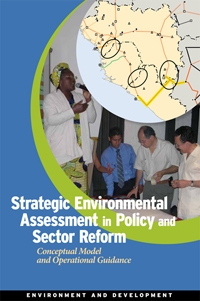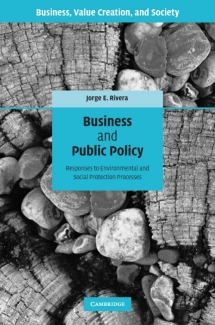FILTER
Displaying 1111 - 1120 of 1172 publications
The paper shows that unstructured lending from international credit markets can create incentives to loot the country; and an enhanced likelihood of looting causes greater political instability, and…
| Peer Reviewed | South AfricaThe paper gives guidance on the ways of reducing pollution in a township settlement. The average levels of PM10 pollutants in Khayelitsha, a poor informal settlement near Cape Town in South Africa…
| Peer Reviewed | South AfricaJorge Rivera presents a new theoretical framework for understanding the relationship between protective public policies and business compliance. It is increasingly common for businesses to face public…
| Books | Central America and MexicoCosta Rica’s transport sector contributes to the aggravation of problems such as air pollution, vehicular congestion and traffic accidents that mainly affect the country’s urban areas. In this…
| Policy Brief | Central America and MexicoThis study evaluates the effect of driving restriction on national transport fuel sales in San José, Costa Rica. Driving restrictions such as the one implemented in the San José Metropolitan Area, in…
| Policy Brief | Central America and MexicoAs China quickly becomes the world largest market and supplier of forest products over the past decade, her domestic policy change and ensuing supply trends becomes interesting to many. As being…
| Policy Brief | ChinaCurrently, there is a general dichotomy in rural development policies. This dichotomy between extension-driven adoption of modern inputs on the one hand, and community-driven local public goods on the…
| Book Chapter | Sweden, Ethiopia, Global Hub
